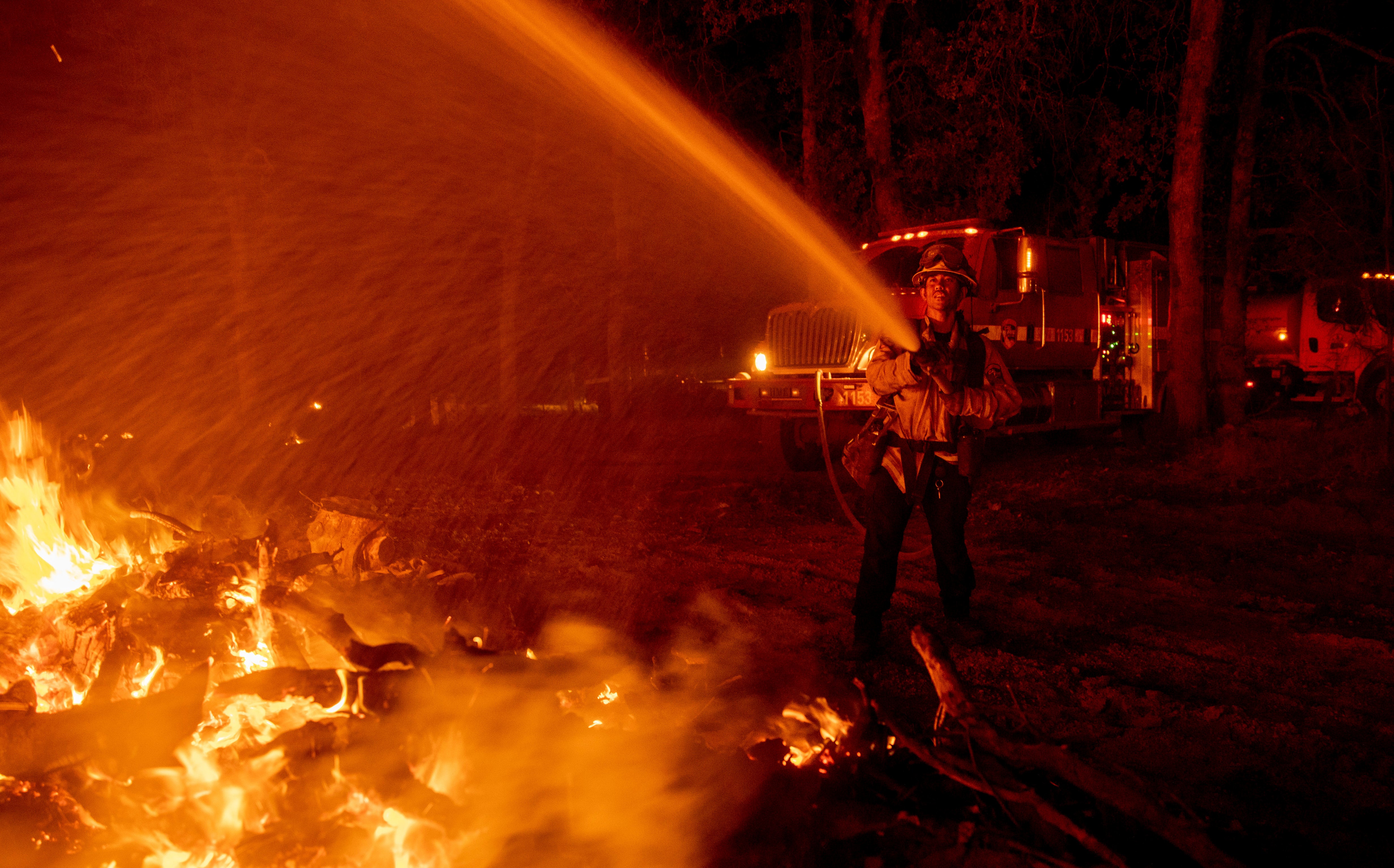Suspected arson wildfire forces evacuations in California
Thousands of people are under evacuation orders as a wildfire suspected of being started by arson rages in Northern California

Your support helps us to tell the story
From reproductive rights to climate change to Big Tech, The Independent is on the ground when the story is developing. Whether it's investigating the financials of Elon Musk's pro-Trump PAC or producing our latest documentary, 'The A Word', which shines a light on the American women fighting for reproductive rights, we know how important it is to parse out the facts from the messaging.
At such a critical moment in US history, we need reporters on the ground. Your donation allows us to keep sending journalists to speak to both sides of the story.
The Independent is trusted by Americans across the entire political spectrum. And unlike many other quality news outlets, we choose not to lock Americans out of our reporting and analysis with paywalls. We believe quality journalism should be available to everyone, paid for by those who can afford it.
Your support makes all the difference.Thousands of people were under evacuation orders Friday and many others were on notice to be ready to flee as a destructive wildfire raged in a drought-stricken forest in California’s far north.
A woman suspected of starting the Fawn Fire was under arrest, authorities said.
The fire in the Mountain Gate area north of the city of Redding covered more than 9 square miles (23 square kilometers) and was 10% contained, according to the California Department of Forestry and Fire Protection, or Cal Fire.
“Approximately 4,000 Shasta County residents are evacuated at this time with 30,000 residents affected,” the Shasta County Sheriff’s Office said in a statement Thursday night.
Cal Fire said at least 25 structures had burned. Photos and video showed some homes blazing but the number of residences lost was not known. Damage inspection teams were conducting assessments, Cal Fire said.
The fire erupted at 4:45 p.m. Wednesday and grew explosively in hot and gusty weather Thursday in the region about 200 miles (322 kilometers) north of San Francisco Weather on Friday was expected to remain hot but with light winds.
Alexandra Souverneva, 30, of Palo Alto was under arrest on suspicion of starting the fire, Cal Fire said.
Workers at a quarry reported seeing a woman acting strangely and trespassing on Wednesday. Cal Fire said Souverneva later walked out of the brush near the fire line, approached firefighters and told them she was dehydrated and needed medical help.
During an interview with Cal Fire and law enforcement, officers came to believe Souverneva was responsible for setting the fire, officials said. She was booked into the Shasta County Jail. It wasn’t immediately known if she has an attorney.
The Fawn Fire is the latest destructive fire to send Californians fleeing this year. Fires have burned more than 3,600 square miles (9,324 square kilometers) so far in 2021, destroying more than 3,200 homes, commercial properties and other structures.
Those fires include two big forest blazes growing in the heart of California’s giant sequoia country on the western slope of the Sierra Nevada.
Smoke from those fires raised air quality concerns in the San Joaquin Valley below the Sierra and also darkened skies over greater Los Angeles on Thursday. South coast air regulators issued a smoke advisory but said the heaviest smoke would remain in the upper atmosphere and impacts on surface air quality would be in local mountain ranges.
Historic drought tied to climate change is making wildfires harder to fight. It has killed millions of trees in California alone. Scientists say climate change has made the West much warmer and drier in the past 30 years and will continue to make weather more extreme and wildfires more frequent and destructive.